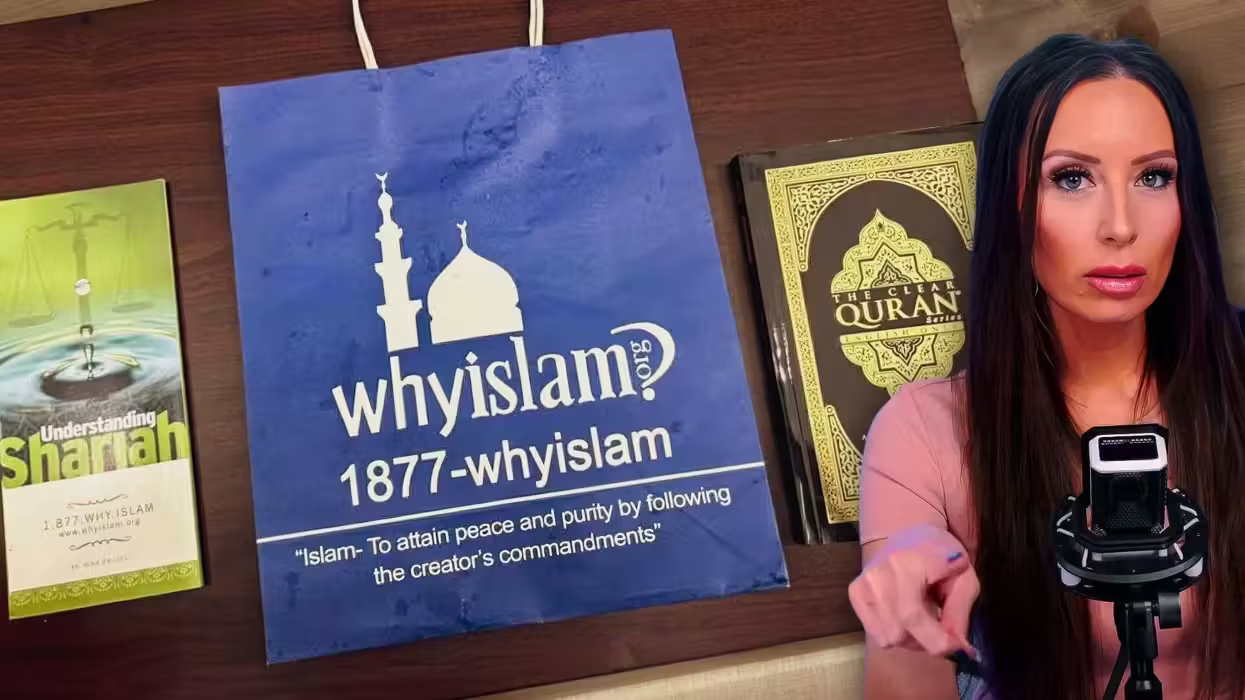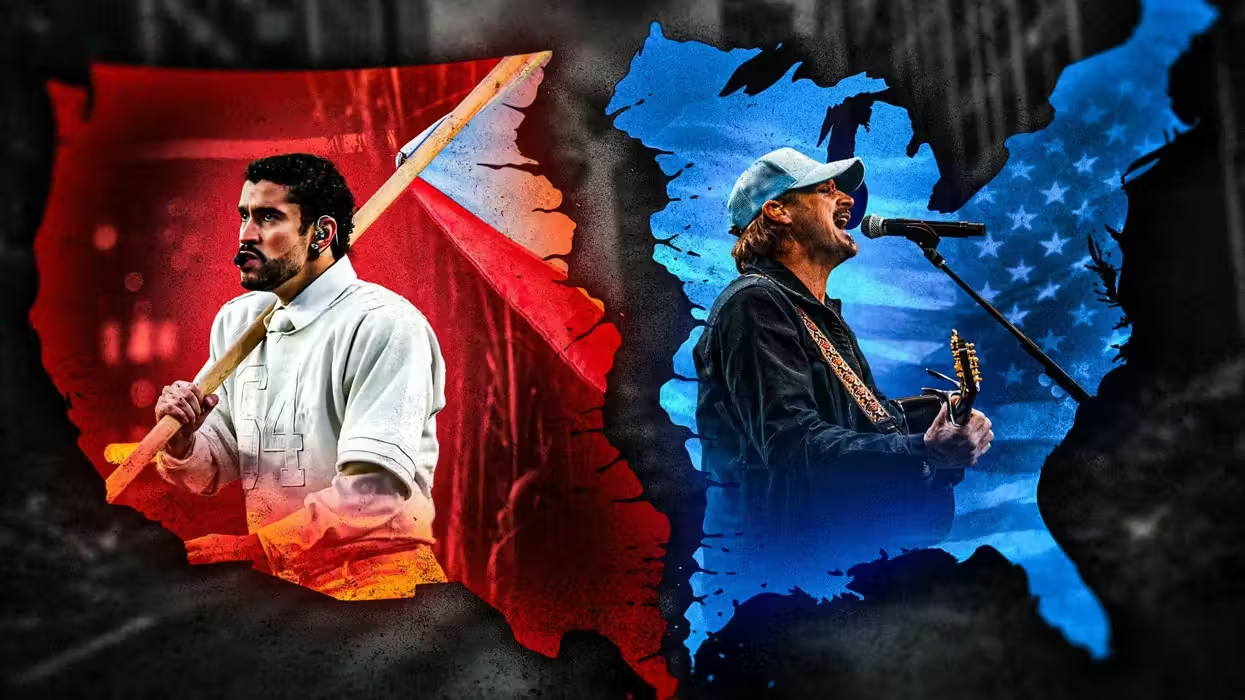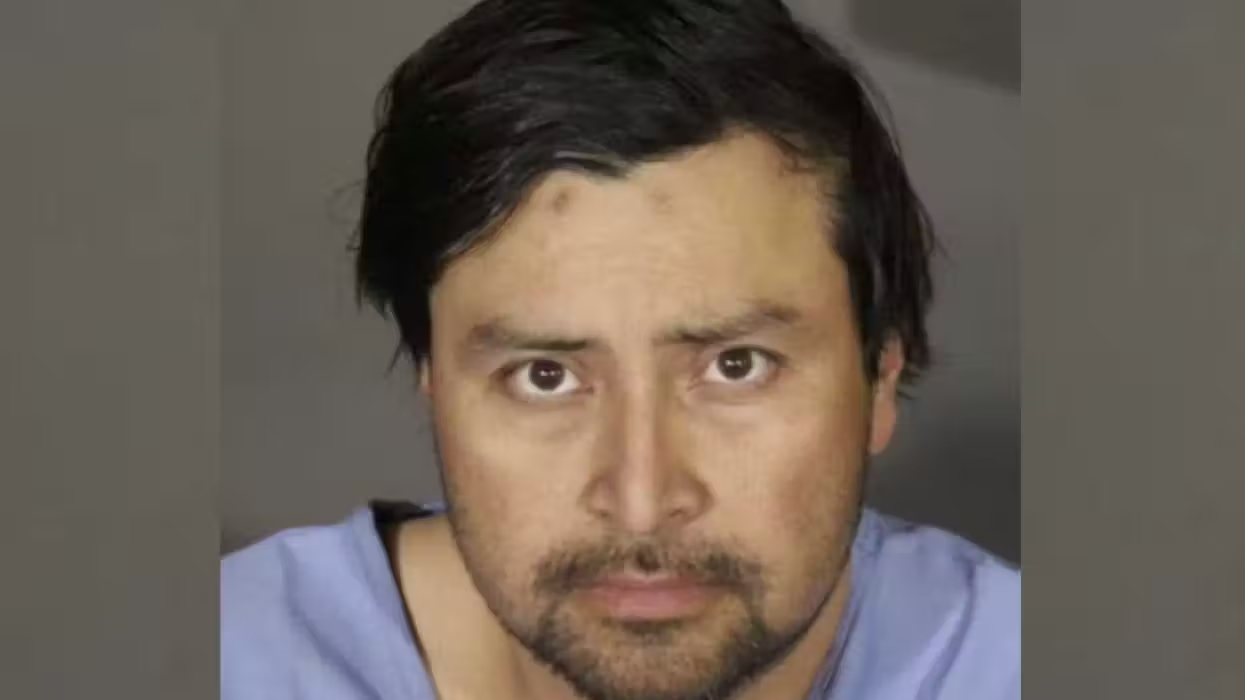
© 2026 Blaze Media LLC. All rights reserved.
Is Gay Marriage a 'Profoundly Unconservative Thing?' See This Explosive Fox Debate
March 24, 2013
“The argument that the public is overwhelmingly in favor of same sex marriage is ludicrous."
With the Supreme Court set to hear arguments this week over both California's Proposition 8 (which defines marriage as between a man and a woman) and Section 3 of the Defense of Marriage Act (which bans the federal government from offering a range of benefits to non-heterosexual couples), "Fox News Sunday" featured 10 minutes of fierce debate between a supporter of same-sex marriage and an opponent.
The catch? Both were self-identified conservatives.
On the pro-same sex marriage side: Nicolle Wallace, former White House communications adviser under President George W. Bush.
On the anti-same sex marriage side: evangelical leader Gary Bauer.
The debate between the two focused initially on Proposition 8, and the question of whether a state could decide to ban same-sex marriage, independent of the national trends. Wallace argued that the Constitution does not allow different standards to be applied to different classes of people, while Bauer argued that the issue was one that was best left to be decided democratically at the state level. Bauer had especially harsh words for Wallace, given that she's one of a group of over 100 Republicans who have signed a brief arguing that same-sex marriage is a constitutional right.
"You don’t advance limited government by being an anti-democratic movement that is attempting to take this issue away from the American people,” Bauer said. “Over 30 states in this country have voted that marriage is between a man and a woman, and of course, the votes are only being held because there's been this radical movement in the last couple of decades that's trying to redefine marriage. So it's a profoundly unconservative thing. In fact, it's the kind of brief that Nicolle and the others have signed that I would expect from liberal Democrats.”
Fox News host Chris Wallace pressed Bauer as to whether he would be alright with the idea of state legislatures deciding the question of same sex marriage. Bauer admitted that while he would prefer the definition of marriage remain purely heterosexual nationwide, "that doesn't look like that's going to happen." As such, he sided with a federalist approach. Bauer also attacked Vaughn Walker, the Reagan-appointed district judge who originally decided the Proposition 8 case.
"His animus to people of faith was disgusting," Bauer said.
Chris Wallace pivoted to the other case at this point -- the one concerning the federal Defense of Marriage Act.
"As a conservative, isn't marriage a state issue, and therefore, should federal interference -- wouldn't that be unconstitutional?" he asked.
"I don't think so," Bauer said, "and neither did a Democratic president and overwhelming--"
"Who's changed his mind," interjected the moderator.
"Well, of course, a lot of people are changing their mind because there's been a full court blitz by the popular culture, by elites, by all kinds of folks to intimidate and to cower people into no longer defending marriage as being between a man and a woman," Bauer fired back.
"Chris," Nicolle Wallace cut in, "the biggest problem that Mr. Bauer faces, not just this morning, but moving forward, is that more than 65 percent of his own base, self-describing evangelical Christians, under the age of 33, support marriage equality. Eighty percent of people in this country, right, left, Democrat, Republican, man, woman, support marriage equality. More than 60 percent of all Americans -- everyone -- supports marriage equality."
Chris Wallace asked Nicolle Wallace if guaranteeing a constitutional right to same-sex marriage might be moving too far, too fast, citing Justice Ruth Bader Ginsburg's hesitance over the landmark abortion case Roe v. Wade as an analogy. Nicolle Wallace demurred on arguing for a full-scale constitutional right, arguing instead that soon there would be no one left to book to argue against gay marriage, given how pervasively the practice is becoming accepted. Chris Wallace asked why not simply let the practice be decided democratically, then? Nicolle Wallace countered that state legislatures operated at a lag of about 10 years behind the times, citing Kentucky Sen. Rand Paul's declaration to the same effect.
Bauer wasn't convinced.
“The argument that the public is overwhelmingly in favor of same sex marriage is ludicrous," he snapped. "Thirty-three states have voted to keep marriage the union of one man and one woman. If it was so obvious that the American public wants to try a radical social experiment that results in children in those households, definitely, definitely, not having a mother and a father -- that's what makes marriage a special institution, it guarantees that children have mothers and fathers -- if the opinion of the American public was so overwhelming, the gay rights movement and their allies like Nicolle wouldn’t be asking the Supreme Court to say to the American people, ‘You have no say on this issue.’”
Chris Wallace pointed to a poll from the Washington Post showing that 58 percent of Americans favor same-sex marriage, compared with 36 percent who oppose it, a complete reversal from 10 years ago. Bauer dismissed it.
"The polls are skewed, Chris, just this past November, four states, very liberal states, voted on this issue. My side lost all four of those votes, but my side had 45, 46 percent of the votes in all those liberal states," Bauer said, pointing out that this number was higher than the percentage who voted for Mitt Romney.
Watch the argument below, courtesy of Mediaite:
Bauer's arguments are likely to find purchase at the Supreme Court this week, given that the argument for democratically deciding issues that aren't explicitly mentioned in the Constitution is one very deeply respected by justices like Clarence Thomas and Antonin Scalia. Supporters of same-sex marriage, on the other hand, are likely to rely on an argument from precedent, likening the present cases over same sex marriage to the 1967 case declaring a right to interracial marriage, Loving v. Virginia, as well as the privacy rights case Lawrence v. Texas, which declared sodomy laws unconstitutional.
Speculation has run rampant over which line of argument will find purchase with Justice Anthony Kennedy, the court's swing vote. Same-sex marriage supporters have been optimistic, given that Kennedy wrote the majority opinion in Lawrence. On the other hand, opponents of same sex marriage point to the following passage in Kennedy's very same opinion (emphasis added):
The present case does not involve minors. It does not involve persons who might be injured or coerced or who are situated in relationships where consent might not easily be refused. It does not involve public conduct or prostitution. It does not involve whether the government must give formal recognition to any relationship that homosexual persons seek to enter.
Will Kennedy extend the reasoning of his previous case further? Oral arguments on Tuesday and Wednesday should give a clue.
Want to leave a tip?
We answer to you. Help keep our content free of advertisers and big tech censorship by leaving a tip today.
Want to join the conversation?
Already a subscriber?
more stories
Sign up for the Blaze newsletter
By signing up, you agree to our Privacy Policy and Terms of Use, and agree to receive content that may sometimes include advertisements. You may opt out at any time.
Related Content
© 2026 Blaze Media LLC. All rights reserved.
Get the stories that matter most delivered directly to your inbox.
By signing up, you agree to our Privacy Policy and Terms of Use, and agree to receive content that may sometimes include advertisements. You may opt out at any time.







